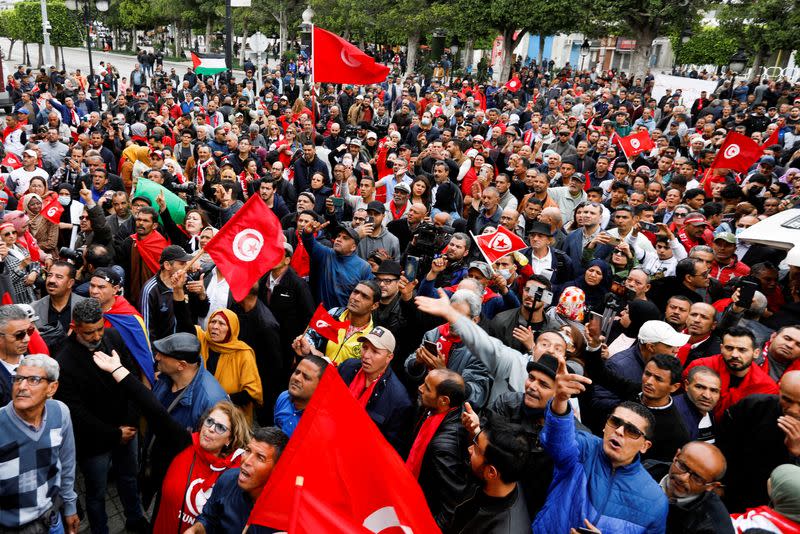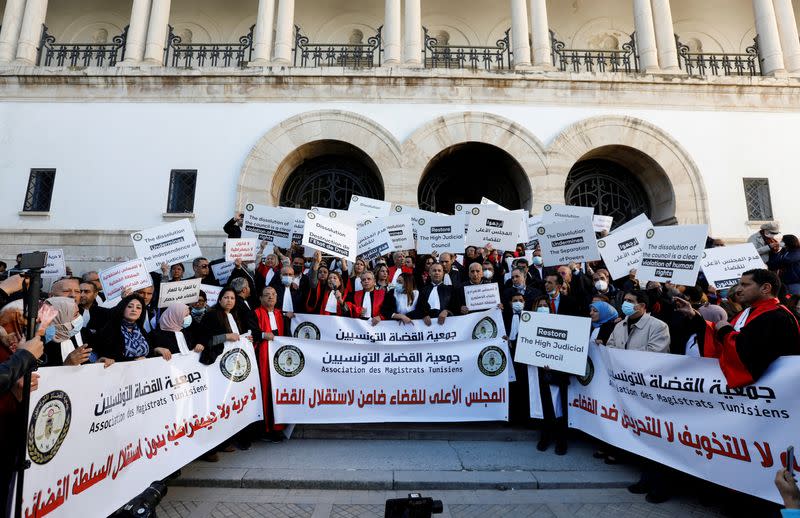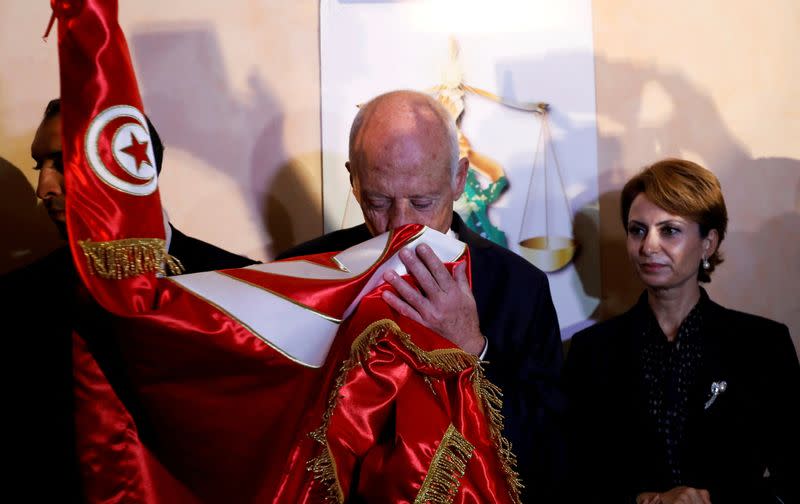Tunisia's turbulent ride from revolution to presidential power bid
- Oops!Something went wrong.Please try again later.
- Oops!Something went wrong.Please try again later.
- Oops!Something went wrong.Please try again later.
TUNIS (Reuters) - President Kais Saied is asking Tunisians to approve a new constitution in a referendum on Monday. Critics see his actions since seizing broad powers last summer as having unpicked Tunisia's democratic gains since a 2011 revolution.
Here is a timeline of Tunisia's tumultuous political path over the past decade.
* December 2010 - Vegetable seller Mohamed Bouazizi sets himself on fire after police confiscate his cart. His death and funeral spark protests over unemployment, corruption and repression.
* January 2011 - Autocrat Zine al-Abidine Ben Ali flees to Saudi Arabia, as Tunisia's revolution triggers uprisings across the Arab world.
* October 2011 - Moderate Islamist party Ennahda, banned under Ben Ali, wins most seats in a parliamentary election and forms a coalition with secular parties to plan a new constitution.
* March 2012 - Growing polarisation emerges between Islamists and secularists, particularly over women's rights, as Ennahda pledges to keep Islamic law out of the new constitution.
* February 2013 - Secular opposition leader Chokri Belaid is assassinated, prompting street protests and the resignation of the prime minister. Jihadists mount attacks on police.
* December 2013 - Ennahda cedes power after mass protests and a national dialogue, to be replaced by a technocratic government.
* January 2014 - Parliament approves a new constitution guaranteeing personal freedoms and rights for minorities, and splitting power between the president and prime minister.
* December 2014 - Beji Caid Essebsi wins Tunisia's first free presidential election. Ennahda joins the ruling coalition.
* March 2015 - Islamic State attacks on the Bardo Museum in Tunis kill 22 people. In June a gunman kills 38 at a beach resort in Sousse. The attacks devastate the tourism sector and are followed by a suicide bombing in November that kills 12 soldiers.
* March 2016 - The army turns the tide against the jihadist threat by defeating dozens of Islamic State fighters who rampage into a southern town from across the Libyan border.
* December 2017 - The economy approaches crisis point as the trade deficit soars and the currency slides.
* October 2019 - Voters show dissatisfaction with the major parties, first electing a deeply fractured parliament and then political outsider Kais Saied as president.
* August 2020 - Saied names Hichem Mechichi as prime minister, but quickly falls out with him as the fragile administration lurches through successive crises while struggling to handle the pandemic.
* July 2021 - Saied dismisses the government, freezes parliament and says he will rule alongside the new prime minister in an intervention that his foes call a coup. Soon afterwards he brushes aside the constitution to rule by decree.
* February 2022 - After judicial challenges to some of his actions, Saied gives himself ultimate authority over judges, replacing the council that guarantees their independence before purging dozens of them in May.
* July 2022 - Saied puts a new constitution to a referendum, seeking to formalise many of the powers he has assumed over previous months and watering down the role of parliament. But political parties oppose his moves and the powerful labour union calls strikes over worsening economic conditions.
(Reporting by Angus McDowall; Editing by Frances Kerry)


